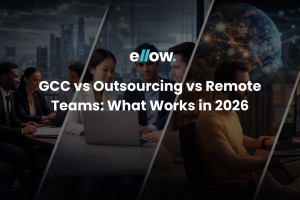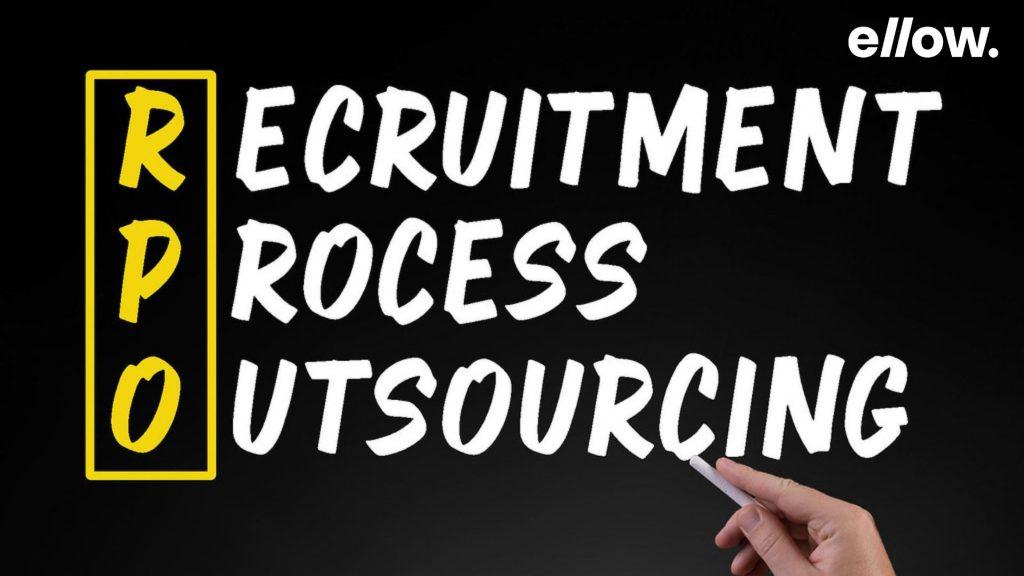
Let’s build the future together.
Great ideas need great people. Partner with us to bring your vision to life, or take the first step in your career by joining our team of innovators.

Recruitment can be a challenging and time-consuming task for any company. Finding the right talent to fit the organizational culture, meet the job requirements, and bring value to the team is crucial for success.
Recruiting talented candidates has become increasingly challenging for small to medium-sized businesses with limited resources. This is particularly true for startups, as they may lack the necessary expertise and resources to manage the recruitment process effectively.
As a result, startups often face additional pressures, including increased costs, time constraints, and the risk of making poor hiring decisions.
That’s where Recruitment Process Outsourcing (RPO) comes in. RPO providers can take the burden of recruitment off these businesses, saving them time, money, and resources, and allowing them to focus on their core business operations.
According to a recent Grand View Research study, the global recruitment process outsourcing market size is expected to reach USD 20.8 billion by 2027.
In this blog, we’ll look at what RPO is, how it works, and what benefits it can bring to your organization.
RPO, which stands for “Recruitment Process Outsourcing“, is a type of outsourcing where an organization outsources some or all of its recruitment functions to an external provider. Typically, the external supplier is in charge of the entire recruitment process, from finding and screening candidates to onboarding new hires.
To explain what RPO is, let me give you an example.
let’s say that a company in the IT sector is experiencing rapid growth and needs to hire a large number of software developers within a short period. However, its HR division is not able to keep up with the rapid growth and cannot handle this surge in recruiting.
In this case, the company could outsource the recruiting process to an RPO service provider. The RPO provider would work closely with the company’s HR team to understand the company’s recruiting goals before taking over the talent recruitment process and using their own expertise, technology, and resources to find, screen, and engage candidates.
They would also offer regular reports and updates on the recruiting process to the company’s HR personnel.
By partnering with RPO providers, companies can outsource part or all of their recruitment processes to improve efficiency and focus on core business functions.
But how exactly does RPO work?
Here’s how the RPO process works:
Throughout the process, the RPO provides the organization with frequent reports and updates on key recruiting metrics such as time-to-fill, cost-per-hire, and quality of hiring.
This enables the organization to track the progress of the recruiting process and make data-driven decisions. Organizations can free up internal resources to focus on key business functions.

Small and Medium-Sized Businesses (SMBs) face unique recruitment challenges, including limited resources and competition from larger companies. Recruitment Process Outsourcing (RPO) can provide SMBs with a cost-effective and efficient solution to these challenges.
But what are the specific benefits of RPO for SMBs?
Here’s an example:
Let’s say a multinational company is looking to expand its operations into a new country, but it has limited knowledge of the local labor laws and regulations. The company is concerned about the risk of non-compliance, which could result in legal liabilities, fines, and reputational damage.
To mitigate these risks, the company decides to get the services of an RPO provider that has expertise in the local labor market and compliance requirements.
By working with the RPO provider, the company can ensure that recruiting practices are fully compliant with local laws and regulations.
Overall, RPO can help organizations streamline their recruitment processes, reduce recruitment costs, improve the quality of hires, and create a more diverse and inclusive workforce, making it a valuable solution for organizations of all sizes and industries.
Unlike traditional recruiting or staffing firms, which focus on filling specific roles, RPO providers work with businesses to simplify their whole recruitment process. Everything from job postings and candidate sourcing to onboarding and compliance.
To compare RPO versus traditional recruiting, see the table below.
Whether or not Recruitment Process Outsourcing (RPO) is right for your organization depends on a number of factors. Here are some things to consider:
Assess your own recruitment expertise as well as technology to see if RPO may bring extra value. Finally, whether or not RPO is suitable for a company is determined by its specific objectives, goals, and constraints.
Choosing the right Recruitment Process Outsourcing (RPO) provider is an important decision that can impact the success of your small company’s recruitment process.
Here are some key factors to consider when selecting an RPO provider:
If, as an organization, you are considering building your Developer team, we can help you start building one in less than 48 hours.
As discussed above Recruitment Process Outsourcing (RPO) is an effective solution that can benefit organizations in numerous ways, such as faster recruitment, cost savings, specialized expertise, and better control over the recruitment process.
To keep up with the growth, outsourcing the recruitment process to an RPO provider like Ellow can streamline the recruitment process and help businesses focus on core operations.
Ellow provides customized RPO solutions, including talent sourcing, screening, assessment, and candidate engagement.
RPO can benefit organizations of all sizes and industries, from small businesses to large multinational corporations.
Yes, RPO providers can play a key role in helping organizations to improve diversity and inclusion in their recruitment processes. This can include sourcing candidates from diverse backgrounds, removing bias from job postings and interview processes, and implementing diversity training for recruiters and hiring managers.
Pros:
Cons:
RPO, or Recruitment Process Outsourcing, is focused on outsourcing recruitment processes such as sourcing, screening, and onboarding candidates.
BPO, or Business Process Outsourcing, involves outsourcing entire business processes such as customer service, accounting, or human resources to third-party providers.
While both RPO and BPO involve outsourcing to external providers, they differ in terms of the specific processes being outsourced. RPO is focused solely on recruitment processes, while BPO can encompass a wider range of business processes.
RPO can offer several benefits over internal recruitment, including access to a wider talent pool, reduced cost per hire, improved recruitment efficiency, and better compliance with hiring regulations. Additionally, RPO can help to free up internal resources and allow the organization to focus on other areas of its business.
Staffing involves filling open positions on a short-term or contract basis, while RPO (Recruitment Process Outsourcing) involves outsourcing the entire recruitment process to an external provider.
RPO typically focuses on long-term strategic talent acquisition, while staffing is more focused on immediate staffing needs.
A recruiter is an individual who is responsible for finding and hiring qualified candidates for open positions within a company. They typically work directly for the company they are recruiting for and are tasked with identifying potential candidates, screening them, and presenting them to the hiring manager for further consideration.
An RPO recruiter is a recruiter who works for an external company that provides recruitment services to other organizations. RPO recruiters are responsible for managing the entire recruitment process for their clients, from sourcing and screening candidates to scheduling interviews and managing the hiring process.
They may also provide additional services, such as employer branding and recruitment analytics.
RPOs make money through various pricing models. Common models include:
RPO recruiters typically receive a salary from the RPO provider they work for. In addition to their base salary, some recruiters might receive bonuses or commissions based on the number of placements they make, the satisfaction of the client, or meeting specific recruitment milestones.
Great ideas need great people. Partner with us to bring your vision to life, or take the first step in your career by joining our team of innovators.
Looking to build your career in development? team@ellow.io